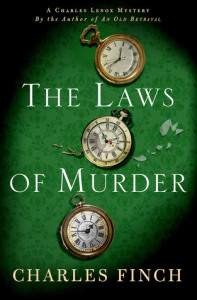 The Laws of Murder by Charles Finch
The Laws of Murder by Charles Finch Series: Charles Lenox #8
Published by Minotaur Books on 2014-11-11
Genres: Historical Mystery, Mystery
Pages: 304
Source: the publisher
Add to Goodreads

Also in this series: An Old Betrayal, A Beautiful Blue Death, The September Society, The Fleet Street Murders, Home By Nightfall, The Inheritance, The Woman in the Water, Gone Before Christmas, The Vanishing Man, The Last Passenger, An Extravagant Death
Also by this author: An Old Betrayal, A Beautiful Blue Death, The September Society, The Fleet Street Murders, Home By Nightfall, The Inheritance, The Woman in the Water, Gone Before Christmas, The Vanishing Man, The Last Passenger, An Extravagant Death
It’s 1876, and Charles Lenox, once London’s leading private investigator, has just given up his seat in Parliament after six years, primed to return to his first love, detection. With high hopes he and three colleagues start a new detective agency, the first of its kind. But as the months pass, and he is the only detective who cannot find work, Lenox begins to question whether he can still play the game as he once did.Then comes a chance to redeem himself, though at a terrible price: a friend, a member of Scotland Yard, is shot near Regent’s Park. As Lenox begins to parse the peculiar details of the death – an unlaced boot, a days-old wound, an untraceable luggage ticket – he realizes that the incident may lead him into grave personal danger, beyond which lies a terrible truth.With all the humanity, glamor, and mystery that readers have come to love, the latest Lenox novel is a shining new confirmation of the enduring popularity of Charles Finch’s Victorian series.
What’s. . . Your Poison?
Guest Post by Charles Finch
I’m pretty sure that not all of us regularly think about how to kill people – pretty sure, though I will make allowances for those of you who work in retail, or root for the Chicago Cubs. I do however. So far, the tally: poison, gunshot, stabbing, poison, stabbing, gunshot, strangulation, poison. And a bunch of others I’m probably forgetting.
That’s still better than Agatha Christie, who once estimated that she slaughtered more than a thousand people. Such is the peculiar fate of the mystery novelist. Every year we have a conference – Bouchercon, you should come and buy Michael Connelly a beer! – and I don’t think I’ve ever found a group of kinder, gentler, more humorous, self-deprecating people. Murderers all. At least in ink.
Naturally, the conversation often turns to: how?
I write Victorian mystery novels, and that limits what I can do. No assault rifles; no anthrax; no torpedoes. I actually enjoy the challenge. For my first book, A Beautiful Blue Death, I invented a poison (“pizen,” as one of Dickens’s characters might say) that had the attributes of several different exotic real-life poisons, including the odd effect of turning its victims’ blood blue. Christie liked to use poison because it was subtle, and because she had studied pharmaceuticals, and therefore knew a lot about the subject. I like it because I don’t care for grisly crime novels – although in my fifth book, A Burial at Sea, the deaths are a little bit unpleasant, and I have to admit that it’s my favorite in the series.
The most creative method of fictional murder that I know belongs, naturally, to a character of Sir Arthur Conan Doyle’s – the wonderfully terrifying Dr. Grimesby Roylott, who in “The Speckled Band” uses a rare snake, “a swamp adder, the deadliest snake in India” to try to murder his stepdaughter. Doyle knew what he was doing. (Or, sort of – snakes are deaf, which means they can’t be whistled into action, and they also can’t climb cords, which the fictional swamp adder does.) On the other hand, he’s also responsible for one of the silliest methods of murder – death by jellyfish, in “The Adventure of the Lion’s Mane,” one of the weaker late stories. Yes, that’s a spoiler, but trust me: I’m saving you some time.
In my newest book, The Laws of Murder, I fall back, alas, on the old standby: a single pistol shot to the temple, leaving a neat hole. Maybe that’s because in the end I don’t read murder mysteries for the murders. Isn’t it funny, how these stories are a comfort and reassurance to so many of us, an escape? Why are we escaping into violence? For a safe thrill, sure – but those of us who prefer gentler mysteries, I think, are really there to see everything put right. Give me Holmes: meting out justice, returning the world to its proper state of benevolent, positivist rationality. If only life were like that. We kill people on paper in the dream that such tidy resolution would be possible; but of course it’s not. Alas.
My Review
Charles Lenox, gentleman and former M.P., is finding it harder than he expected to get back into detection after six years as in Parliament. . . and it doesn’t help that his former allies at Scotland Yard seem determined to scuttle his new detective agency before it can properly get on its feet. But when one of his oldest friends at the Yard is murdered, Charles and his partner Dallington are more than willing to join the investigation. The case will lead them to iniquity at the highest levels of society as well as into personal danger.
I discovered Charles Finch’s mystery series only last year, and I’m already hooked. Finch writes with clarity, precision, and a restraint that is far from emotionless. His prose has much of the flavor of Victorian literature while avoiding its excesses. He’s also quite skilled at plotting a mystery; while I eventually guessed a few aspects of the case, he managed to lead me completely down the garden path regarding some of the most important facets, including the identity of the murderer.
Lenox himself exhibits a similar restraint to that of Finch’s writing style. He’s a gentleman detective in the tradition of Lord Peter Wimsey, Campion, and Roderick Alleyn, but more like Alleyn in temperament: somewhat reserved except among close friends, honorable, a man whose integrity is so ingrained he never has to think about it. Lenox also has many of the traditional attitudes of his class, sex, and era, but these are tempered by his intellect, his compassion, his experience, and above all his willingness to question what seems apparent – a vital attribute for a detective. It’s not always comfortable, however, and it’s interesting to watch him begin to question those assumptions: wondering, for example, whether it’s quite fair that he can vote when his young and intelligent daughter will not be able to.
Finch is quite aware of Victorian customs, social mores, and class distinctions. In this book, Lenox finds the transition from gentleman M.P. to being in business (as opposed to being an amateur) somewhat awkward. His lack of success in bringing in cases is also beginning to strain the partnership, at least with his two newer (and poorer) associates, LeMaine the Frenchman and Polly Strickland, who unlike Dallington and Lenox have no other source of income.
I quite enjoy the secondary characters in the series, from Lenox’s supportive wife, Lady Jane, to his friends Lord Dallington and Dr. McConnell. But it’s Lenox who stands at the center of the books – not a colorful or ideosyncratic character like Holmes or Lord Peter Wimsey, but a man well worth taking the time to get to know. If you enjoy intelligent, well-written, and ingenious detective novels, by all means read the Charles Lenox mysteries by Charles Finch.
Giveaway!
I have an ARC of The Laws of Murder to give away to one lucky reader.
Reading this book contributed to these challenges:
- Cruisin' Thru the Cozies 2014



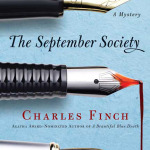
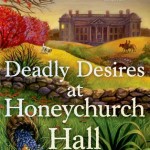
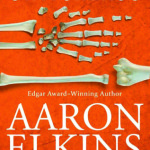

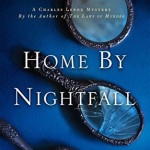
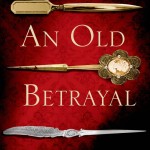

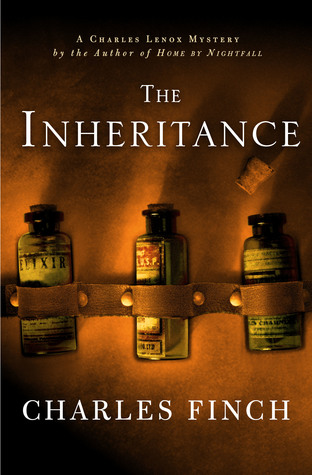

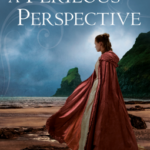
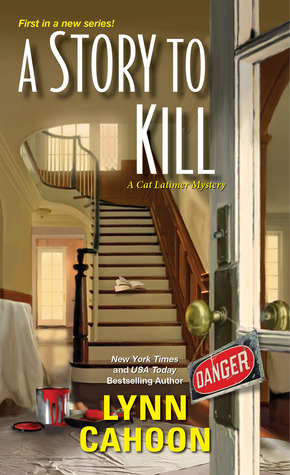

























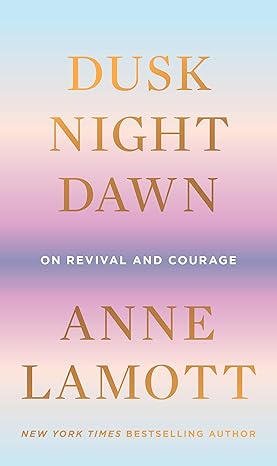
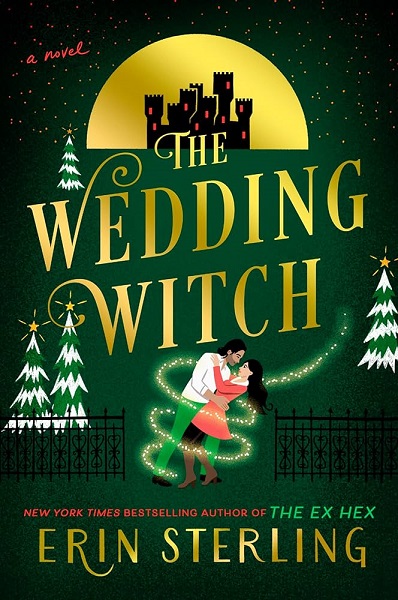









Bea @Bea's Book Nook
I don’t read many historical mysteries because I don’t read many historical books, period, but I’ve seen this series around and I like the sound of it.
Bea @Bea’s Book Nook recently posted…SPOTLIGHT & EXCERPT: Gideon Lee by Lisa Orchard
Lark_Bookwyrm
It’s very good! I got my mom onto them by giving her the first three last Christmas, and she really enjoys them.
Katherine @ I Wish I Lived in a Library
I haven’t read many historical mysteries though I read mysteries that were written in the 20s and up quite a bit. I’ve started reading historical fiction some lately and have really enjoyed it. I actually have the first one in this series sitting on my shelf somewhere but haven’t gotten to it. I’m glad you enjoyed this one and I really enjoyed reading what Finch had to say.
Katherine @ I Wish I Lived in a Library recently posted…The Question of the Missing Head – Review
Lark_Bookwyrm
He’s a good writer; I think you’ll enjoy book one.
Lisa Eickler
I absolutely love Charles Finch’s Lenox series and am looking forward to this addition to the series. Loved his blog post here, too. I didn’t read the review-afraid of spoilers!
Lark_Bookwyrm
I try to be careful not to include spoilers without spoiler warnings, so you should be safe! Thanks for stopping by!
Lisa Eickler
Thanks!
Lark_Bookwyrm
🙂
Michelle Fidler
Yes, I love historical mysteries. The Victorian era is my favorite to read about. I also read cozy mysteries.
Lark_Bookwyrm
I read cozies, too. I think cozies and historicals tend to offer something of the same feeling, that sense of justice and right being done, of order being restored, that Charles talks about in his guest post. You don’t always find that in hardboiled detective novels or the darker contemporary thrillers and police procedurals.
I’d love suggestions for other Victorian mysteries if you have any. (I’ve read a lot of Anne Perry’s Thomas & Charlotte Pitt series already.)
Lark_Bookwyrm
Michelle, congratulations! You’re the winner of he Laws of Murder ARC. Please email me by the end of the day on Friday 11/07/14 with your name and snail-mail address so I can ship it to you. I’m sure you’ll enjoy it!
Lark_Bookwyrm recently posted…Top Ten Books I Want to Reread
Sheila K.
I love mysteries and I love mysteries that involve other cultures or time periods—if I could wrestle a genie into granting me one wish, I would wish for the ability to travel through time—historical mysteries take me where I want to go without having to wrestle a genie!
Lark_Bookwyrm
I love that! Yes, historical mysteries combine two of my reading passions, too – historical fiction and mystery. In fact, I prefer my historical fiction to be either mystery or romance, though I do read some straight-up historical fiction, too.
hgeng63
Exactly why I read Charles Finch’s Lenox mysteries!
My tastes in reading have changed & I no longer have as much time to read as I used to, but I will continue reading the Charles Lenox mysteries.
Lark_Bookwyrm
It’s always a pleasure when you find a series worth following. 🙂
Rachelle
Historical fiction is one of my favorite genres, mysteries being a huge part of that. The Regency and Victorian eras are my favorite. Charles Finch brings up a question I’ve asked myself from time to time. Why is it we are drawn to mysteries? I don’t like grisly mysteries either and am not a fan of horror at all, unless it is an old gothic horror story. Interestingly, A Burial at Sea is also my favorite Lenox book. The murders were very different from anything Lenox had encountered so far, but it fit the setting perfectly. In his blog, Mr. Finch discusses the types of murder he is limited to because of the time period he writes in. But I can perfectly imagine that out on the open seas, murder looked different. So, back to the question of what draws me to murder mysteries? I don’t know. But I love to read them.
Lark_Bookwyrm
I know I’m drawn to mystery because at its root, as Charles says, it’s about good and social order being restored, even after something bad happens. It’s a reminder that evil does not triumph. However, that’s only true of certain kinds of mystery. It’s not true of some thrillers and psychological mysteries, and even some hardboiled detective novels. It does tend to be true of much British mystery, particularly the Golden Age writers like Christie, Sayer, Marsh, and Tey but also newer writers (British or American) writing British mystery, like Charles Finch, Laurie R. King, Deborah Crombie, G. M. Malliet, Rhys Bowen, and Carola Dunn. And of course it’s basic to the cozy genre as well.
Rachelle
Oooooo! You’ve given me some new names to look up. I’m familiar with Wilkie Collins, Doyle, Christie, and Sayers, but the rest you mentioned are unknown to me. One of the reasons I enjoy British authors from that time period, or writers like Charles Finch, has to do with the writing style. I volunteer at our local library, shelving books, which gives me an opportunity to come in contact with new-to-me authors. I was extremely dissappointed with one book I brought home and have a hard time understanding why this author is so popular. Her language usage and writing style were dull and boring, without the use of the rich language found in writing of a different time.
Lark_Bookwyrm
If you appreciate good writing, I don’t think you’ll be disappointed with Ngaio Marsh, Josephine Tey, Laurie King’s Mary Russell series, Deborah Crombie, or G. M. Malliet’s Max Tudor mysteries. You might also check out Catherine Aird, particularly her early and mid-career books. Rhys Bowen and Carola Dunn each have a lighter series (Her Royal Spyness and Daisy Dalrymple, respectively) and a more serious series (Molly Murphy an the Cornish mysteries, respectively.)
Donna L
I like to read historical mysteries. The Victorian era is my favorite.
Lark_Bookwyrm
I like the Victorian era for mystery, too! The advent of new technologies like the railway and (eventually) early motorcars and telephones add some complexities and also some detection methods that aren’t there in earlier times. But then again, I love Ellis Peters’ Brother Cadfael mysteries, and they’re set in the twelfth century, and she manages to find plenty of complexities, and her detective-healer-monk is pretty savvy about finding clues!
Donna
I love historicals but must have missed these. Will check with my local library, they sound wonderful.
You mentioned you wanted suggestions of other Victorian writers – how about Robin Paige – has 12 books at present – all about Lord Charles Sheridan and his wife Kate. Each book features a famous personality – Sir Arthur Conan Doyle, Winston Churchill and his mother Jenny and so on. Very well done I think.
Lark_Bookwyrm
Robin Paige – good suggestion! I came across them in the library but didn’t have time to read one, and then I forgot about them. Thank you for the reminder!
Donna
I took your advice and checked out the first book in the series from my library “A Beautiful Blue Death”. I’m sorry but, after reading 4 Chapters, I gave up. The author is much too detailed – I do not need to know what is on every wall of a room. And I found 4 things which would not take place in a Victorian setting. I feel Mr. Finch slipped up either on his research of the era or else because it is the first book, maybe I should give him the benefit of the doubt and read a later one.
Lark_Bookwyrm
Interesting. I got the impression that he’s pretty careful about his research. But the Victorian era covers an awfully long time, and things changed quite a bit during that time period. I’m sorry you didn’t enjoy it, but hope you’ll find other series that you do enjoy! 🙂